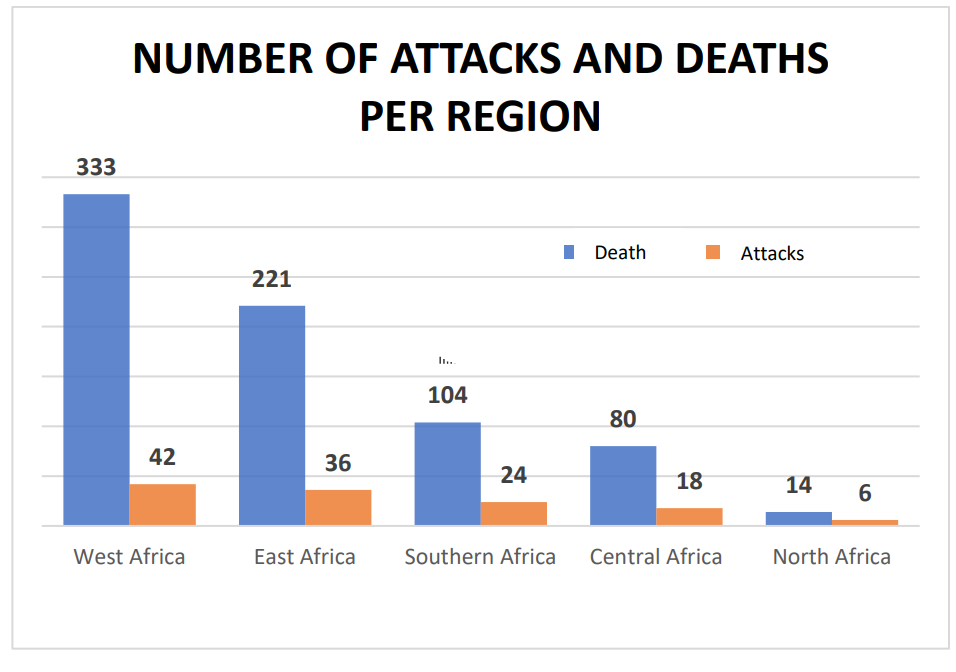By Seleman Yusuph Kitenge
Terrorism continues to pose a significant challenge to both African nations and the global community as a whole. The African Center for the Study and Research on Terrorism (2022) reported that from July 1st to September 30th, 2022, 388 terrorist attacks resulted in over 2,391 fatalities across the continent. It is imperative for governments to implement effective measures to counteract terrorism and ensure the security of their populations. While many nations primarily employ top-down approaches in the fight against terrorism, bottom-up strategies that involve local communities can also be highly effective. This is due to the fact that terrorists often blend in with local communities while planning their operations before executing their attacks.
One such bottom-up measure that has proven to be effective is Tanzania’s “Balozi Nyumba Kumi” system, also known as the ten-house cell system. This approach represents a grassroots-level security strategy and has demonstrated its utility as an early warning system in the fight against crime and terrorism in particular.

Source: African Centre for the Study and Research on Terrorism (2022)
The ten-house cell system is a community-based security approach that involves the creation of small groups of ten households within a community. The members of each group are tasked with monitoring their respective areas for any unusual activity and reporting any potential threats to the relevant authorities. This system provides a more efficient and cost-effective layer of security compared to traditional security measures. A study conducted by the Tanzanian Ministry of Home Affairs (2021) found that the ten-house cell system has been successful in reducing incidents of terrorism in the country by 40% over the past five years. The system’s effectiveness and efficiency make it a model worth emulating for other African nations as they look to tackle terrorism, which remains a major obstacle to meeting the continent’s commitment to its development plans, both at the continental and global levels.
One of the key benefits of the ten-house cell system is that it allows for a more proactive approach to security. Rather than relying solely on law enforcement, the community takes an active role in ensuring its own safety. This means that any potential threats can be identified and reported early on before they have a chance to escalate. This proactive approach is especially important in areas where law enforcement resources are limited, as is often the case in many African countries. In a paper published by the African Journal of Political Science (2019), the authors argue that community involvement is critical to the success of counterterrorism efforts in Africa. However, this is not the case in most countries across the continent as community involvement is heavily influenced by a range of factors, including cultural and political factors, resources, and the nature and scope of the terrorism threat faced by each country.
Another advantage of the ten-house cell system is that it provides a more human-centered approach to security. Rather than relying on impersonal surveillance cameras and other technology, the system relies on the personal connections and relationships between members of a community. This human-centered approach can lead to more effective intelligence gathering and can also help to build trust between communities and the authorities. In a report by the United Nations Office on Drugs and Crime (2020), it is noted that community-based approaches to security are more effective in gathering intelligence and preventing terrorism than traditional security measures. This is due to challenges such as limited resources and a lack of sustainability as most traditional security measures may not be sustainable in the long term and may not provide a lasting solution to the problem of terrorism.
Finally, the ten-house cell system is cost-effective compared to traditional security measures. The cost of setting up and maintaining a ten-house cell system is significantly lower than the cost of deploying traditional security measures, such as cameras and other technology. This is especially important in African countries where resources are often limited. In a study by the African Institute for Development Policy (2021), it was found that the ten-house cell system cost 40% less than traditional security measures while providing a more effective level of security.
In conclusion, Tanzania’s ten-house cell system is a model for effective grassroots counterterrorism efforts in Africa. By relying on community involvement and personal relationships, the system provides a more proactive and human-center approach to security. It is a cost-effective solution that can help to ensure the safety of communities across the continent. Other African countries would do well to consider adopting similar systems as a way to counter terrorism and protect their citizens. In this context, Tanzania should also share this experience and practice with other African countries considering that counter-terrorism requires collective efforts to be successful.
References:
African Journal of Political Science. (2019). Community Involvement in Counterterrorism Efforts in Africa.
African Centre for the Study and Research on Terrorism (2022). The quarterly Africa terrorism bulletin. Retrieved from https://caert.org.dz/frica-terrorism-bulletin/
African Institute for Development Policy. (2021). Cost-Effectiveness of Community-Based Approaches to Security in Africa.
Tanzanian Ministry of Home Affairs. (2021). The Impact of the Ten-House Cell System on Counterterrorism in Tanzania.
United Nations Office on Drugs and Crime. (2020). Community-Based Approaches to Counterterrorism in Africa.
Seleman Yusuph Kitenge is the Project Assistant Knowledge Capitalization, African Union Development Agency/ NEPAD, Midrand,South Africa






















